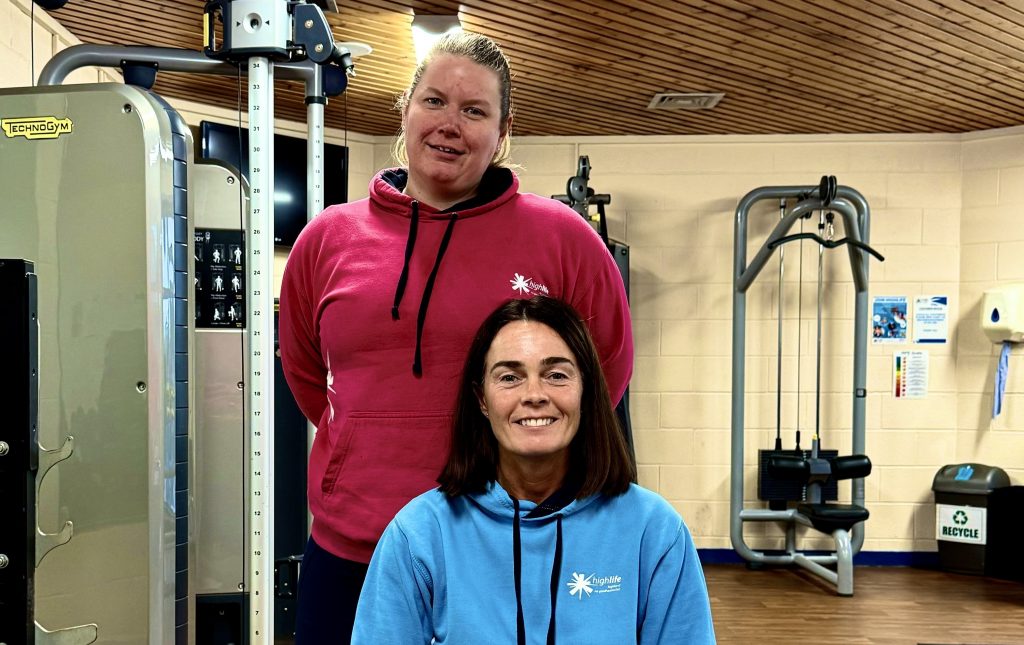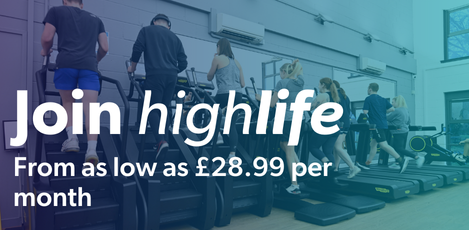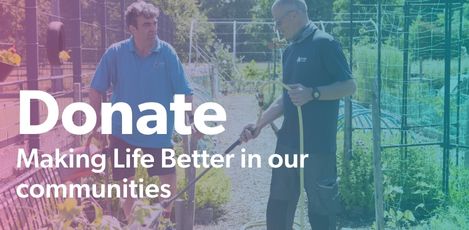
World Menopause Day: 18th October 2024
High Life Highland is reaching out to women across the region to encourage more of them to experience the benefits of keeping active as a way of navigating the menopause – before, during and after.
Today marks World Menopause Day (Friday 18th October), which aims to raise awareness of the menopause and the support options available for improving health and wellbeing.
Natural menopause typically occurs between the ages of 45 and 55, with the average age being 51 in the UK. With female life expectancy in the UK being around 83 years, this means that women will spend a significant amount of their lifetime post menopause.
“It is so important that women are being physically active at all stages in life but exercise is really beneficial during perimenopause, menopause, and post-menopause – particularly cardiovascular exercises and sessions that will improve strength and balance,” said Sarah Muir of High Life Highland’s Sport and Leisure Team.
Sarah, who works at the Black Isle Leisure Centre, is a personal trainer and specialises in womens health. She has taken part in menopause training, giving her a better insight into the issues women face and what positive steps they can take to make life better during this time.
She added: “A significant number of women are potentially missing out on the physical, mental and social benefits of sport and physical activity at a time when they could benefit the most, for both their short and long-term health. It is well known that regular physical activity can help women to cope more effectively with their menopausal symptoms.
“While everyone benefits from cardiovascular exercise, women can be at particular risk of heart disease after the menopause. It’s therefore extra important to do cardio regularly – it also helps to boost mood and improve sleep – so this could be Zumba or indoor cycling for example, or even just getting out for a brisk walk.
“I also highly recommend anything that boosts strength. After menopause, we experience a loss of oestrogen, which can put women at increased risk of osteoporosis and sarcopenia. Studies have shown that weightlifting and other strength-based exercises can help to retain and build muscle mass and bone density, improving not just our physical health but also our mental wellbeing.
“Balance and mobility can sometimes decline during the menopause too because of a loss of muscle mass so things like yoga and pilates are also ideal classes to sign up for.”
Lesley Mann (56) works alongside Sarah at the Black Isle Leisure Centre, working as a cashier/receptionist – she is a big advocate for keeping active and getting the help you need.
“I had these unexplained aches and pains. It was my sister, who is a menopause specialist, that suggested it might be menopausal symptoms– I had no idea up to that point,” said Lesley
“I am taking HRT and alongside that, being physically active is absolutely the best thing for me in terms of managing my menopause.
“I am doing pilates once a week, which has been great for my achy joints. I am doing a couple of cardio classes to help manage my weight and kettlebells for retaining and building muscle – as well as a good blast of fresh air when I am walking the dogs.”
Carol Jackman (62) from Munlochy has been a personal training client of Sarah’s for around four months and says that sessions in the gym with her have had a hugely positive effect on her life.
“I have been going through menopause for over 10 years but these last few months with Sarah, working out in the gym, doing weights and going swimming has helped me physically – I’ve lost weight and I am fitter – but my mental health is in far better shape too.
“The menopause can make you feel very low but coming to the Black Isle Leisure Centre where everyone looks after you has boosted my mood enormously. I struggled for a long time, trying to manage my menopause on my own – now I realise how important it is to reach out for support. I can’t imagine myself not going to the gym now!”
Studies show that the earlier women can develop a regular habit of cardio and strength exercises the better it is for their long term health and wellbeing. Fortrose-based nurse, Miriam Cameron (49) is doing just that.
“I believe that the stronger I can be now, the better it will be later on when I am older,” said Miriam.
“The benefits of being physically active are universally positive and while I feel that I am coping really well with the physical symptoms of being perimenopausal, I have been suffering from brain fog and low mood, which for a normally cheerful person like me, is difficult.
“However, I know that a visit to my local leisure centre for a gym session or zumba class is going to make me feel so much better.”
According to a study carried out by charity Women In Sport, a third of women aged 41 to 60 in the UK are not meeting the Chief Medical Officer’s guidelines of 150 minutes per week of exercise and a fifth are not achieving even 30 minutes per week due to a variety of factors such as affordability, family and work commitments and lack of confidence.
Sarah Muir wants to change all that. She added: “I am on a mission to make sure women can be the best version of themselves at any time but particularly later in life and I would urge women not to struggle. Menopause can be a challenging time with symptoms ranging from hot flushes to anxiety – it can be hard to feel your best but High Life Highland can help support you through your journey.”
To find your nearest highlife leisure centre or for details of classes, please visit the High Life Highland website.







